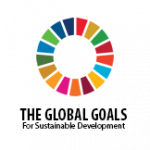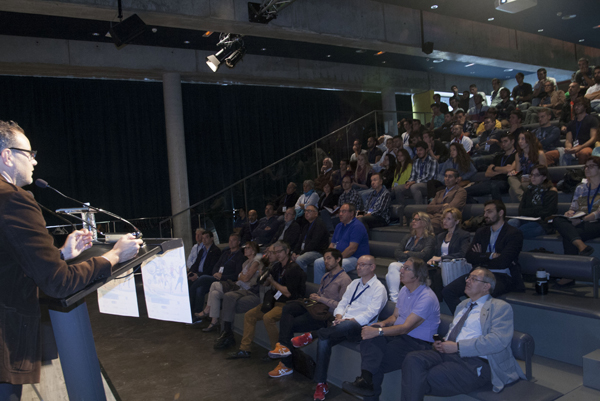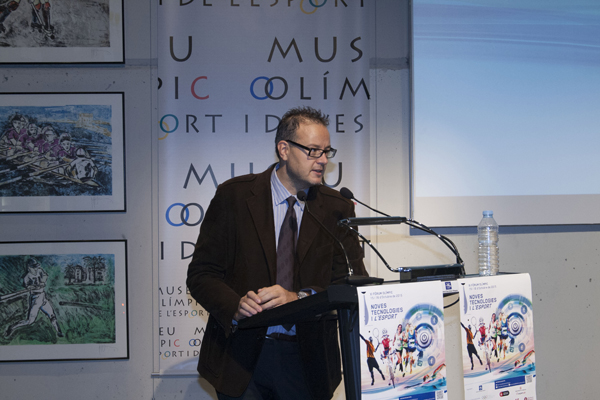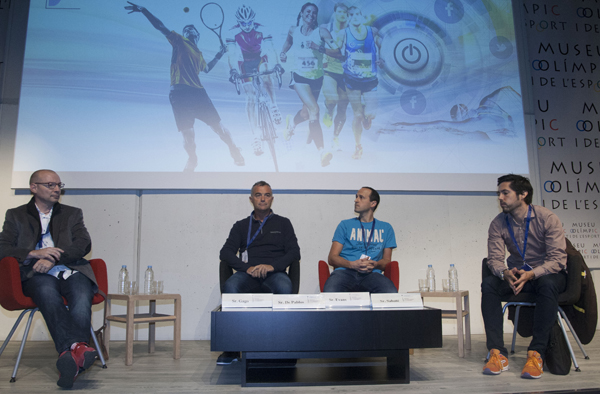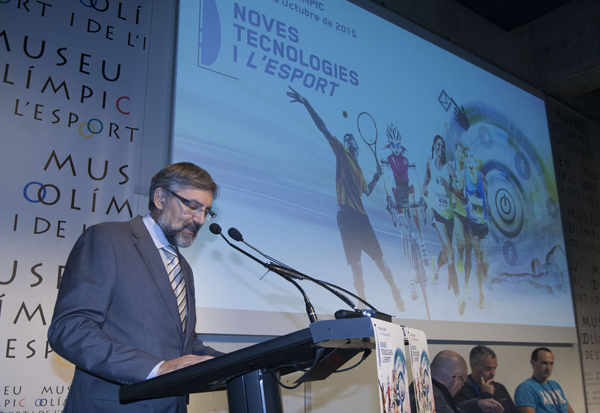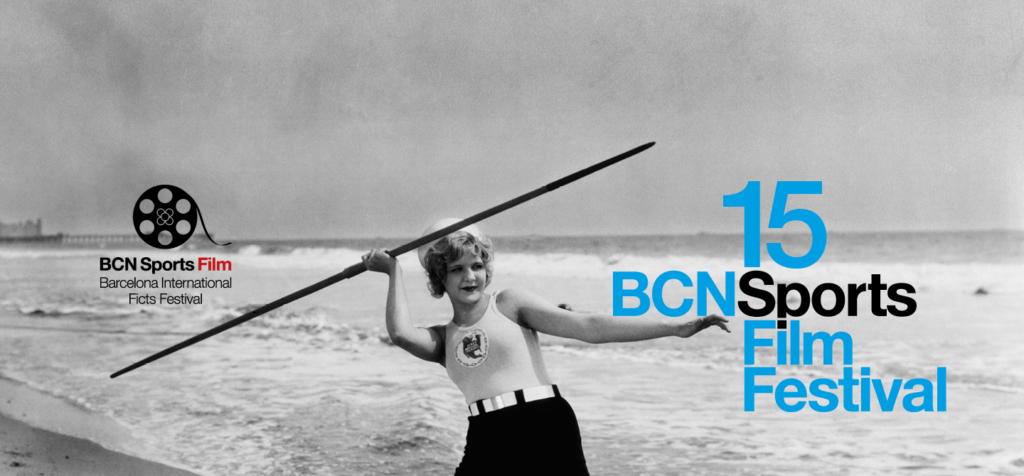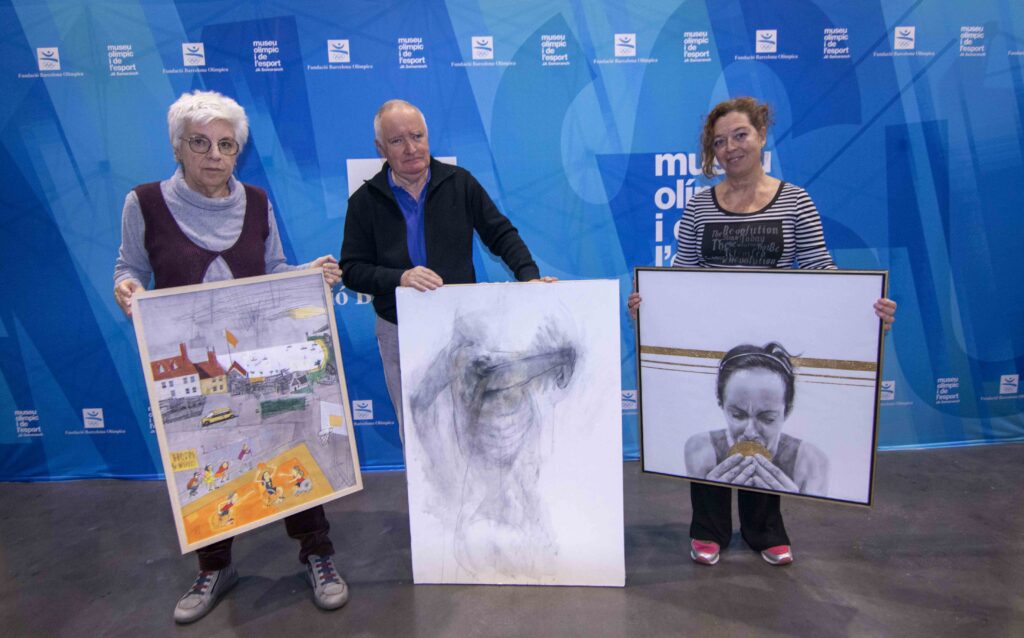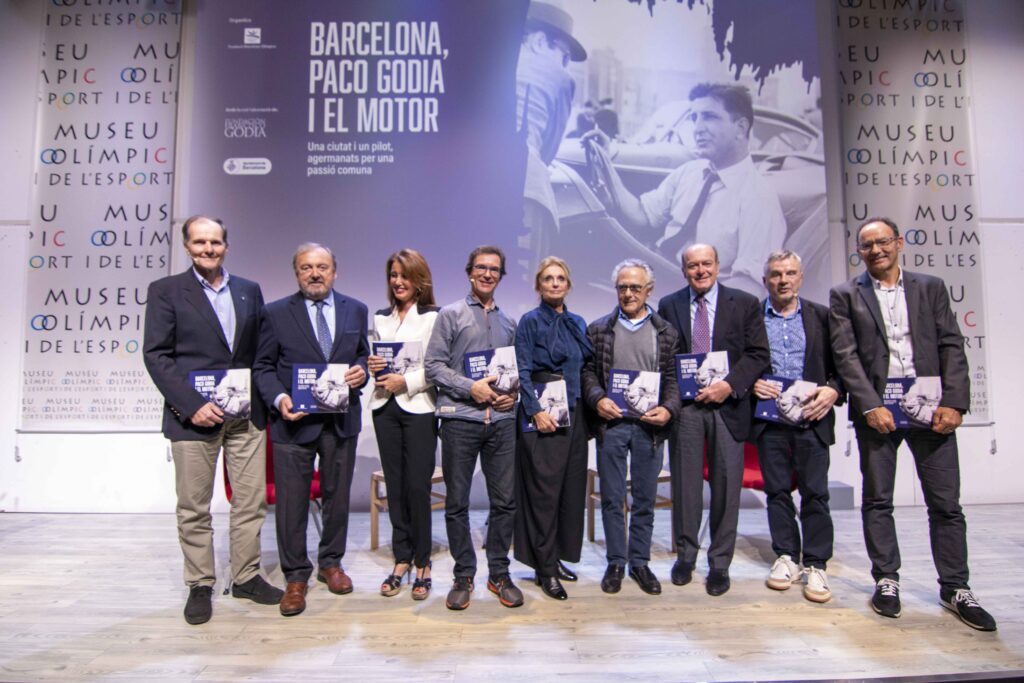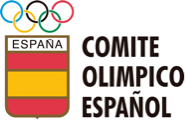The first of the two round tables moderated by Martí Niubó was made up by Jesús de Pablos, director of 1d3a; José Antonio Gago, Eurescat; Alun Evans, from the Barcelona World Race: the Game and Xavier Sabaté, CEO at Bravento. Three businesses specialised in giving technological solutions to the sports sector at both a professional and amateur level. People’s needs lead to development.
Technologies and sponsorship were the subjects discussed in the final round table held in the Olympic Forum. Moderated by Ibone Lallana, it was attended by Joan Antón Camuñas, director of the advisiry firm CRS Sport & Cultura; Francisco J. Carballo, director of SponsorTo and Julián Casas, promoter of “Patrocina un Esportista” (Sponsor a Sportsperson). The speakers put forward their ideas and the projects that will enable sport to survive. New sponsoring trends, crowdfunding, and interactive sponsorship are, and will continue to be, the survival of sports and sportspeople. For this reason, it is necessary to change the mentality of both companies and the general public.
Alberto Aragó, responsible for organising the event, was in charge of closing the 11thEdition of the Olympic Forum, held in 2015.
GENERAL CONCLUSIONS OF THE 11th EDITION OF THE OLYMPIC FORUM
For two days we enjoyed listening to the 21 speakers who took us closer to the reality of sport which, thanks to technology, has undergone a change in the last ten years.
The session dedicated to Social Networks made us aware of two key facts: the first is that society wants to be a part of sport, and the immediacy of social networks can lead to false information, which is why it is important to verify the news.
In the same way that individuals have to know how to be selective as regards the high number of applications offered by the technology-sports sector.
The second session, Event and Venue Management, was marked by the progress made during the last decade. Technology has meant that passive sport and sportspeople have taken on a participative nature. Spectators can now interact and this can lead to actively participating in sports. Technology brings the sports product closer; consequently creating a need.Another subject raised in the second session was the concept of “time”. Considering time as an element of value, technology immediately transmits information that used to have to travel a long distance.
The third and last session, Entertainment and Interactive Sponsorship, highlighted the presentation of Open Camp, an innovative project within the sports sector created with the aim of making top-level sports competition a recreational and social activity. Thanks to new technologies, it makes individuals feel the emotions of sport.
And, finally, it must be pointed out that technology still needs to address the significant issue of sports sponsorship, usually considered a cultural matter. Crowdfunding, or interactive sponsorship, has yet to establish its bases for funding sports.
